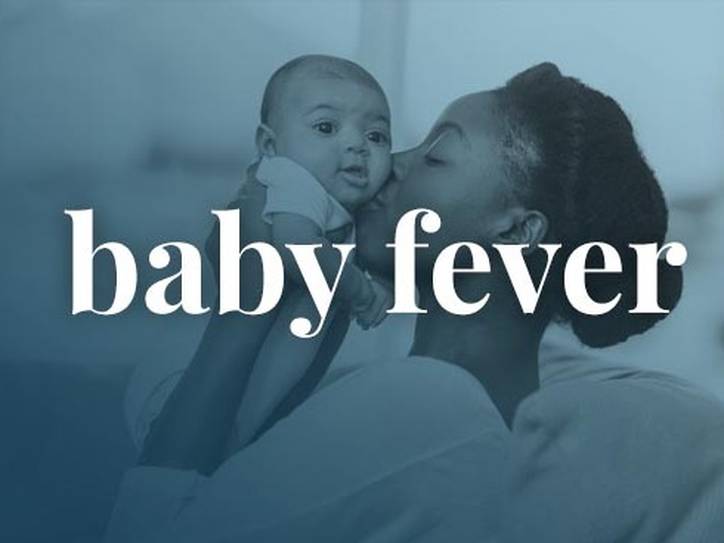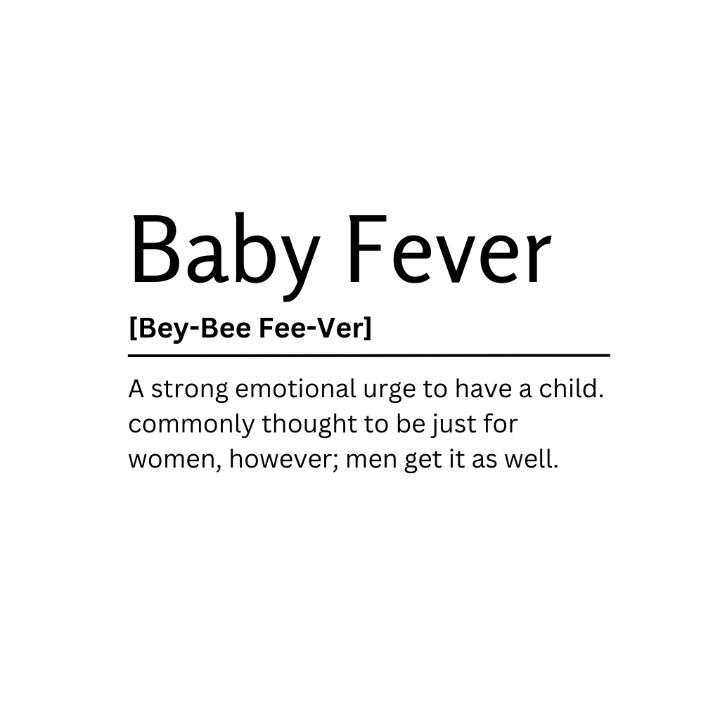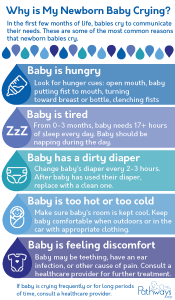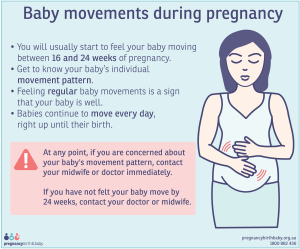Baby fever meaning refers to a strong desire to have a baby, often experienced by individuals in their reproductive years. This intense longing for parenthood can encompass feelings of excitement, longing, and a sense of readiness to start or grow a family.
Many people experience baby fever as a result of societal, biological, or personal factors, and it can manifest in a variety of ways, such as increased interest in children, heightened emotional responses to baby-related stimuli, and a desire to actively pursue starting a family.
Understanding the meaning of baby fever can help individuals navigate their own desires and make informed decisions about their reproductive goals.

The Concept Of Baby Fever
Have you ever felt an intense desire to have a baby or felt a sudden longing to hold a newborn in your arms? If so, you may have experienced what many refer to as “baby fever.” This intriguing phenomenon is characterized by a strong urge to have a baby, which is often accompanied by emotional and physical changes. In this article, we will delve deeper into the concept of baby fever, looking at its definition and exploring the psychological urge behind it.
Defining Fever
Baby fever is a term commonly used to describe a strong longing or desire to have a baby. It is a feeling that goes beyond a general appreciation for infants and becomes a deep yearning to become a parent oneself. While the idea of baby fever varies among individuals, it is generally recognized as a powerful desire that can be overwhelming.
It is important to note that baby fever is not limited to women only. Men can also experience this longing and exhibit similar signs and symptoms associated with the desire for fatherhood. Baby fever can affect people at any stage of life, regardless of their relationship status or whether they already have children.
Exploring The Psychological Urge
The psychological urge behind baby fever is a topic that has intrigued researchers and psychologists for years. Many theories attempt to explain why individuals experience this intense longing for a baby. Here are some key factors that contribute to the psychological urge of baby fever:
- Biological clock ticking: The biological clock, also known as the urge for procreation, is a natural phenomenon that is hardwired into the human species. This biological urge is influenced by hormonal changes and evolutionary instincts, driving the desire to reproduce.
- Social influence: Society’s expectations and cultural norms regarding family and parenthood can significantly impact an individual’s desire for a baby. Pressure from family and friends, as well as societal views on parenting, can contribute to the psychological urge for a child.
- Emotional fulfillment: For many people, the idea of having a baby represents emotional fulfillment and a sense of purpose. The longing for a child is often tied to the desire for a deeper connection, unconditional love, and the opportunity to nurture and care for another life.
- Personal and life goals: Aligning personal and life goals with the desire for a child can further amplify the psychological urge of baby fever. Factors such as career stability, financial readiness, and the desire for a family legacy or continuation play a role in this psychological longing.
Understanding the psychological urge behind baby fever helps individuals acknowledge and make sense of their feelings. It is essential to remember that experiencing baby fever is a personal and unique journey, and it is perfectly normal for one’s desire for a baby to fluctuate over time.
Historical Perspectives
Historical Perspectives: Exploring the concept of Baby Fever through the lens of history provides insight into how this phenomenon has evolved over time.
Baby Fever Through The Ages
Baby fever has been a recurring theme throughout history, with desires for children being deeply ingrained in human nature.
Cultural And Societal Influence
Cultural beliefs and societal norms have played a significant role in shaping the perception of parenthood and the desire to have children.
Factors Influencing Baby Fever
Baby fever, the longing for a child, is influenced by various factors such as social pressures, personal desires, and biological instincts. These factors can shape an individual’s desire to have a baby and impact their readiness for parenthood.
Factors Influencing Baby Fever Baby fever is a phenomenon characterized by an intense desire to have a baby. Numerous factors contribute to the emergence of baby fever. It is crucial to understand the various influences that drive individuals to experience this strong longing for a child.
Biological Triggers Biological changes: Hormonal shifts can amplify baby fever in individuals.
Reproductive age: Women nearing menopause may feel a heightened urge for a baby.
Innate instincts: Evolutionary biology indicates a natural inclination towards procreation.
Social and Environmental Factors Social norms: Peer influence and societal expectations can instigate baby fever.
Media representation: Idealized portrayals of parenthood in the media can foster the desire for a baby.
Family and friends: Surrounding oneself with individuals who have children can trigger baby fever. In summary, Baby Fever is influenced by both biological triggers and social and environmental factors. Understanding these influences can provide insight into the intense desire for parenthood.
Baby Fever In Modern Society
Having a strong desire to have a baby is not a new phenomenon, but the concept of “baby fever” has taken on a new meaning in modern society. With advancements in career opportunities and lifestyle choices, individuals are faced with unique challenges when it comes to starting a family. In this post, we will explore the impact of career and lifestyle choices as well as how parenthood is navigated in the digital age.
Impact Of Career And Lifestyle Choices
In today’s fast-paced world, career aspirations play a significant role in the decision to start a family. Many individuals, both men and women, are focused on establishing themselves professionally before considering parenthood. The pursuit of higher education, climbing the corporate ladder, or even starting their own business often becomes a priority.
While this focus on career advancement is commendable, it can sometimes lead to a delay in starting a family. Some couples find themselves postponing parenthood until they feel financially stable or have reached certain milestones in their careers. This choice is often driven by the desire to provide their future children with the best possible opportunities and a comfortable life.
Moreover, lifestyle choices are another contributing factor to the delay in starting a family. Many people are drawn to a more independent and adventurous lifestyle in their youth. They may crave experiences such as traveling the world, pursuing personal passions, or enjoying the freedom of not being tied down by parental responsibilities.
Additionally, the expectation of maintaining a specific standard of living can also impact the decision to have children. Individuals wanting to maintain their current lifestyle may hesitate to add the financial burden of raising a child to their already existing obligations. They may prioritize material possessions or experiences over starting a family.
Navigating Parenthood In The Digital Age
As technology continues to shape our lives, the journey of parenthood is no exception. The advent of the digital age has brought both advantages and challenges when it comes to raising children.
On one hand, the digital age has provided parents with a wealth of information and resources at their fingertips. From online parenting forums to mobile applications that track developmental milestones, parents now have access to a plethora of tools to aid them in their journey.
However, there are also downsides to this digital dependence. The constant exposure to social media and unrealistic portrayals of parenthood can lead to feelings of inadequacy and comparison. Parents may feel pressured to meet certain societal expectations or strive for perfection, which can add unnecessary stress to their parenting journey.
Moreover, the digital age has also changed the way parents connect and share their experiences. Social media platforms have become a space for parents to seek support, share advice, and celebrate milestones. It has created a sense of community among parents and has made it easier to connect with others who are going through similar experiences.
In conclusion, baby fever in modern society is influenced by various factors, including career goals and lifestyle choices. The digital age has both its advantages and challenges when it comes to parenthood. Ultimately, the decision to start a family is deeply personal and unique to each individual or couple, as they navigate the complexities of their own lives and aspirations.
Challenges And Complications
Baby fever is a common phenomenon, characterized by a strong desire to have a baby or expand one’s family. However, this emotional yearning can bring about various challenges and complications, impacting individuals and couples in unique ways.
Dealing With Infertility
Infertility can be a daunting challenge for individuals or couples experiencing baby fever. The inability to conceive or carry a pregnancy to full term can lead to feelings of inadequacy and frustration
Key challenges include:
- Physical and emotional toll
- Financial strain from treatments
- Impact on relationships
Psychological Strain
Baby fever can exert a significant psychological strain, causing distress and anxiety for those unable to fulfill their desire for a child. For those facing difficulties, the strain can manifest in:
- Depression and anxiety
- Feelings of isolation
- Conflicting emotions towards others’ pregnancies

Gender Perspectives On Baby Fever, Exploring Gender Differences
Baby fever, although a universal emotion, can be experienced differently by individuals based on their gender. Research has shown that women are often expected to have a nurturing instinct and desire for motherhood, while men may experience external pressure to fulfill the role of provider and protector. These societal expectations can influence how baby fever is perceived and expressed by different genders.
Social Expectations And Pressures
Women, in particular, may face social pressures to embrace motherhood and prioritize family life over career aspirations. This can lead to a conflict between personal desires and external expectations, influencing their experience of baby fever. On the other hand, men may feel pressure to establish financial stability before considering parenthood, impacting their perspective on starting a family.
Managing Baby Fever
Managing baby fever involves understanding its meaning, which refers to the intense desire to have a baby. It’s important to acknowledge and address these feelings, whether by talking it out with your partner, seeking professional advice, or preparing for parenthood in practical ways.
Coping Strategies
Managing baby fever can be challenging, but there are several strategies you can employ to cope with these strong desires. By implementing the following coping strategies, you can effectively manage your baby fever:
- Focus on self-care: Taking care of yourself, both physically and emotionally, is essential during this time. Make sure to prioritize proper nutrition, exercise, and sufficient sleep. Engaging in activities that bring you joy and relaxation can also help alleviate the intensity of baby fever.
- Explore alternative caretaking opportunities: If you’re experiencing baby fever but are not quite ready for parenthood, consider engaging in activities that involve spending time with children. Babysitting for friends or family members, volunteering at daycare centers, or becoming a mentor are excellent options to fulfill your nurturing instincts without making permanent parenting decisions.
- Discuss your feelings: Don’t hesitate to open up and talk about your baby fever with your partner, close friends, or trusted family members. Expressing your desires and concerns can provide emotional support and help you gain valuable insights from others.
- Understand your motivations: Take the time to reflect on why you are experiencing baby fever. Evaluate your motivations and desires thoroughly, considering factors such as personal, financial, and relationship readiness. Understanding your underlying motivations can assist you in making informed decisions moving forward.
- Seek professional guidance: If your baby fever is causing significant distress or affecting your daily life, consulting with a mental health professional can be beneficial. They can provide you with guidance, support, and tools to navigate and manage your emotions effectively.
Decision-making Processes
When experiencing baby fever, thoughtful decision-making processes can assist you in making choices that align with your long-term goals and desires. Here are some decision-making approaches to consider:
- Research and gather information: Educate yourself about various aspects of parenthood, such as the responsibilities, lifestyle changes, financial implications, and child development. This information will help you make informed decisions based on your personal circumstances.
- Weigh the pros and cons: Create a list of the advantages and disadvantages of having a baby at this point in your life. Consider the impact it may have on your career, relationships, and overall well-being. Evaluating these factors can aid in determining whether the timing is right.
- Communicate with your partner: Engage in open and honest conversations with your partner about your feelings and desires regarding starting a family. Discuss your goals, concerns, and plans, ensuring you are on the same page and ready to navigate this new chapter together.
- Consider financial implications: Assess your financial stability and think about the costs associated with raising a child. Create a budget, explore healthcare options, and analyze how having a baby may impact your current financial situation. This assessment will provide insight into your preparedness for parenthood.
- Listen to your intuition: Trust your instincts and listen to your inner voice. Pay attention to how you feel emotionally and intuitively about having a baby. Your intuition can often guide you towards the right decision for yourself and your future.

The Future Of Baby Fever
Baby fever represents a strong desire to have a baby – a concept that has evolved over time. Let’s explore the future of baby fever.
Evolving Perspectives
Historically, baby fever was seen as a natural urge. Today, perspectives on baby fever are shifting.
Impact On Population Trends
Baby fever influences birth rates and shapes population dynamics globally.
What Does Baby Fever Mean Slang?
Baby fever, in slang, refers to a strong desire to have a baby. It’s often used to describe someone who is yearning for parenthood.
What Is Baby Fever In A Woman?
Baby fever in a woman is a strong desire to have a baby. It’s not a medical condition, but an emotional longing for motherhood. Women may feel this urge due to biological, social, or personal reasons. It’s a natural and common feeling among women of childbearing age.
What Does It Mean When Someone Says Little Baby Fever?
“Little baby fever” refers to a mild desire for a baby. It’s a term used to describe feeling a small urge or longing for parenthood.
Why Do I Have A Strong Urge To Have A Baby?
The strong urge to have a baby is a natural human instinct influenced by emotions, societal expectations, and a biological desire to procreate. It is a deeply personal and individual longing that can vary from person to person.
Conclusion
Understanding the meaning of baby fever can provide valuable insights into our natural desires and societal pressures. It is a complex phenomenon that encompasses both biological instincts and psychological factors. Whether it is the longing for a child or the influence of external expectations, acknowledging and discussing baby fever can lead to a better understanding of ourselves and our choices.
So, let’s embrace the diversity of human experiences and respect each person’s decision regarding starting a family. ” baby fever meaning, baby fever meaning, baby fever meaning “





